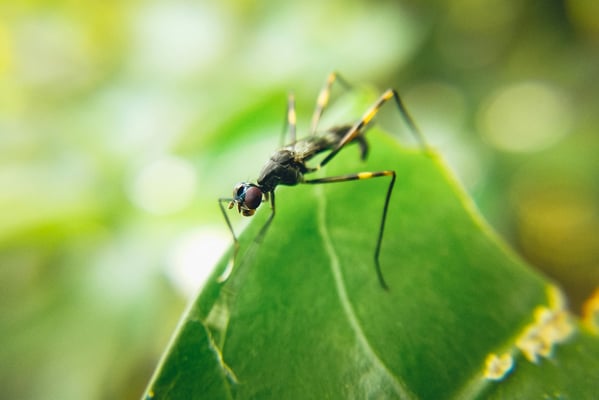Mosquito Mayhem
It’s mosquito season, and it’s a robust one. Besides an annoying itchy bite, mosquitoes carry disease—and because of rising global temperatures, mosquitoes live longer and have expanded to new habitats. West Nile is a virus carried by this pest, and it’s circulating more than usual for this time of summer. More than one-third of the states have reported confirmed human cases, and at least 18 states have detected the virus in mosquitoes, birds, and other animals. The CDC has also issued a warning about Dengue fever in the U.S., including Wisconsin and Minnesota. What do you need to know, and what can you do—besides stay inside away from mosquitoes?
What to watch for. West Nile Virus may or may not cause symptoms—about eight out of 10 cases don’t. But for those who do, it’s typically a fever accompanied by a headache, body aches, joint pain, vomiting, diarrhea, or a rash. Many cases go undiagnosed because these symptoms sound just like a host of other viruses. There are no treatments or vaccines for West Nile other than supportive care, like fluids or pain medication. But if it is West Nile, in severe cases the virus can invade your nervous system causing inflammation of the brain and spinal cord. This can lead to disorientation, vision loss, coma or paralysis. Rare cases may be fatal.
Where to be watchful. So, what can you do to protect yourself and those you care about? It helps to know that the virus is very active in rural areas and farmland. In areas like the Northwest where it’s cooler the virus is less active. But mosquitoes do thrive where there’s lots of stagnant water in storm drains from rainfall and flooding—like the Mississippi River valleys now.
How to protect. While it seems obvious, it doesn’t hurt to be reminded. With either virus, West Nile or Dengue Fever, reduce your exposure. Get rid of standing water sources on your property—like flowerpot saucers or kids swimming pools. Keep the screens on your doors and windows in good condition, and closed, to keep mosquitoes from entering. When you are outdoors, use insect repellant and wear long sleeves and pants. Also, don’t forget that mosquitoes are most active at dusk and dawn. While we love telling you to spend time outside, you also need to be aware, and be safe.
Teresa Pulvermacher, FNP-C
President, ViaroHealth
For questions or comments, contact wellness@viarohealth.com



